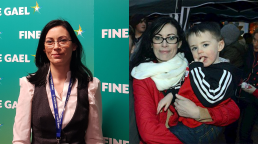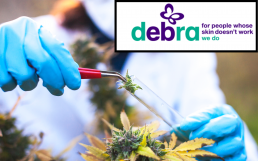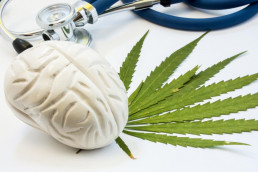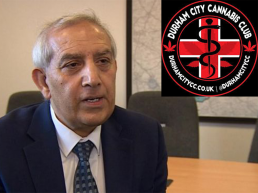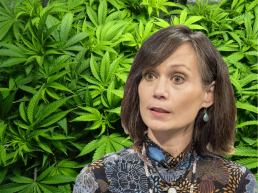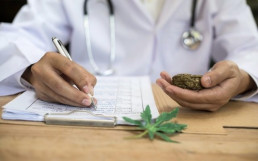Medical cannabis legalised in Greece: country’s first medical cannabis licenses granted
Medical cannabis legalised in Greece: country’s first medical cannabis licenses granted
- Medical cannabis products will finally be available to
- Two licences have already been granted with a further 12 to be issued by the end of 2018
- Millions of Euros are to be invested by pharmaceutical companies in Greece
- 770 new jobs are expected to be created with this foreign investment
- Medical cannabis will not be covered by State Health Insurance
Medical cannabis is finally coming to Greece, eight months after the Greek Government approved legislation which allowed the cultivation and production of medical cannabis in the country.
Greece’s Parliament has now issued the first two license to foreign pharmaceutical companies, permitting them to grow and process cannabis for medical purposes. The announcement was made at the end of November in Athens by Greece’s Health Minister Andreas Xanthos, Deputy Agricultural Development Minister Vassilis Kokkalis and Deputy Economy Minister Stergios Pitsiorlas.

Discussing which pharmaceutical companies had been granted the first licenses, Pitsiorlas said:
“There is huge interest, mainly from Canada and Israel … some of them (potential investors) are huge.”
Pitsiorlas also explained that the first medicinal cannabis products were expected to be available to private patients in about 12-18 months’ time. He also disclosed that Greece’s medical cannabis industry was going to be mainly focused on exporting.
More than 750 jobs are expected to be created, representing more than €185 million in overall investment. The first two licenses have been granted to the provinces of Larisa in central Greece, and in Corinth in the Peloponnese.
“There is huge interest, mainly from Canada and Israel … some of them (potential investors) are huge.”
– Deputy Economy Minister Stergios Pitsiorlas
Just like in the UK, medical cannabis would not be subsidised through state health insurance schemes, meaning only those who can afford a potentially costly private prescription will be able to legally access the products. Whether this will remain the case or is just a first step towards wider legalisation remains to be seen.
]Recreational cannabis will remain illegal and is not even under consideration by Greece’s Government.
Are we going to see more countries finally allow their citizens the basic right to choose in their health care over 2019? Which country will be next to legalise medical cannabis? Only time can tell.
References and further Reading
Irish Mother who campaigned to legalise medical cannabis to stand for election
Irish Mother who campaigned to legalise medical cannabis to stand for election
- Yvonne Cahalane’s son, Tristan, was first child in Ireland to be given a medical cannabis license
- Tristan suffers from severe epilepsy, suffering up to 20 seizures a day before medical cannabis
- Yvonne will stand as a Fine Gael candidate for West Cork in the local elections next week
An Irish mother who’s tireless campaigning helped bring medical cannabis to The Emerald Isle is expected to be added to the voting ballot in next year’s local elections.
Yvonne Cahalane is planning to stand as a Fine Gael candidate in West Cork, recently confirmed that she is being put forward at Fine Gael’s selection convention next week, with the expectation that she will be added to the ticket. Yvonne made headlines in 2015 after launching a fundraising appeal to send her epileptic son, Tristan, to the US for specialist medical cannabis treatment.
Tristan suffers from Dravet Syndrome, a rare and severe form of epilepsy, and could experience up to 20 seizures a day, with some of the more intense seizures lasting up to an hour.

Yvonne and her son became “cannabis refugees,” being forced to relocate to Colorado, where Tristan went through a year’s treatment with a specialist medical cannabis doctor.
Tristan made history in December 2016 when he became the first person in Irish history to be licensed to import medical cannabis products.
While Tristan’s medical cannabis treatment regime is monitored by two Irish doctors, the pair has to travel to the Netherlands every few months to pick up his actual medication.
The treatment seems to be working well for the young boy, as his symptoms are more under control and he is now attending a mainstream school, but Yvonne insists that it is not a cure.
“Despite this being a controversial issue, Fine Gael were the only ones who took this up and did something about it.“
– Yvonne Cahalane
Discussing why she decided to stand for Fine Gael, Yvonne commented:
“When we were in a desperate situation, we asked for help, we asked everybody for help. We didn’t just focus on one political party.
“Despite this being a controversial issue, Fine Gael were the only ones who took this up and did something about it.
“If I can put myself in a position to help those who helped us, to stand beside the party that helped us, I can’t think of a better way to thank them.”
Yvonne’s background in law demonstrates that she is more than qualified for the position and that Fine Gael are not just piggybacking on her recent celebrity status to gain seats.
She began studying law at Griffith College, with her vast research on medicinal cannabis leading to her being asked to make recommendations the Oireachtas Health Committee ahead of the drafting of the proposed Medical Cannabis Access Programme in February 2017, which appear to have stalled for the moment.
Her priorities if elected to Cork County Council include ensuring Dunmanway’s playground becomes one of the most inclusive in the country, through the addition of extra disability friendly equipment.
Fearless mothers have been integral to helping present medical cannabis as a positive in the national narrative. We can only hope that more use their position to help the legalisation effort progress further.
References and further Reading
UK Charity launches medical cannabis oil trial to help treat rare skin condition
UK Charity launches medical cannabis oil trial to help treat rare skin condition
- A trial has been launched to see if cannabis can help treat Epidermolysis Bullosa (EB), which causes the skin to easily blister and tear
- The study will take place in the Netherlands, where cannabis research laws are less restrictive
- EB affects more than 5,000 people in the UK, causing pain and itching, with blisters having to be drained and dressed every day
- Only adults from the Netherlands have been allowed to participate
A British charity has launched a medical study to see if cannabinoid-based medicines (CBMs) can help treat a rare skin condition.
The trial was launched by DEBRA, the only British charity which supports people who suffer from Epidermolysis Bullosa (EB), at the end of 2017.
EB causes the skin to tear and blister at the faintest touch and is reportedly very painful to deal with. Currently, the only available treatments in the UK include a prolonged used of opioid-based pharmaceuticals and anti-inflammatories, which are infamous for their dangerous side effects.
The study is investigating fifteen participants from the Netherlands, aged 18 and over, over a three-year period at the Centre for Blistering Diseases at the University Medical Centre Groningen in the Netherlands.
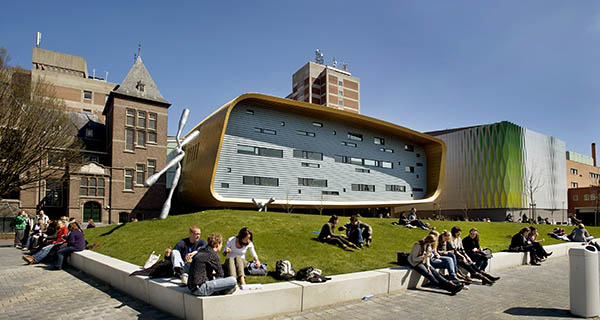
The treatment being followed in this trial is a CBM oil, which contains naturally derived phytocannabinoids from the cannabis plant.
The trial will only be investigating a very weak cannabis oil (CBM), with only 1.3% THC and 2% CBD. Other phytocannabinoids will be present in the cannabis oil, but in smaller quantities.
Participants in the study will use pipettes to drop the CBM under their sublingual gland (under the tongue), four times a day (after breakfast, lunch, dinner and before sleeping).
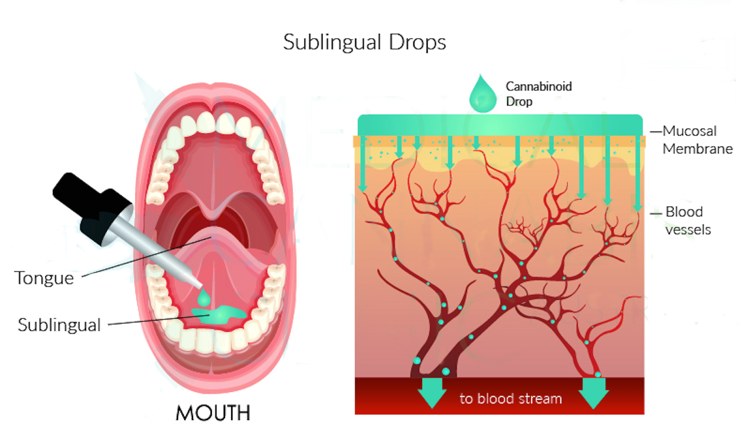
The sublingual gland is the thinnest layer of skin in the body, allowing cannabinoids to enter the bloodstream where they are absorbed faster. This will minimise each individual’s metabolism of cannabinoids, reducing the possibility of side effects.
“Anecdotal reports from people suffering from EB suggest that cannabinoid-based medicines (CBMs) are effective for pain and itch symptom control.“
– Caroline Collins, director of research at DEBRA
]In a press release, DEBRA explained why they were funding this clinical trial on medical cannabis:
“This research is a very important first step in gathering the scientific evidence needed to prove that a cannabis-based medicine could be a safe and effective form of pain relief for EB and ultimately making an effective form of cannabis-based pain relief available to people suffering from EB.”
Anecdotal evidence from EB sufferers inspired the investigation:
“Members of the EB Community in many countries around the world have widely reported that cannabis can reduce the impact of pain and itch caused by EB.
“This trial is vital to help find the safest and healthiest way to deliver medicinal cannabinoids to people with EB, with the maximum alleviation of symptoms and the minimum of side effects.”
The trial already has had initial success, proving that cannabinoid-based medicines may indeed be a better way to treat EB than opioids and anti-inflammatories.
The first three patients recruited to the trial have already reported improved pain scores, reduced itching (pruritus) and reduction in overall pain medication intake, although the researchers stress that further research is needed.
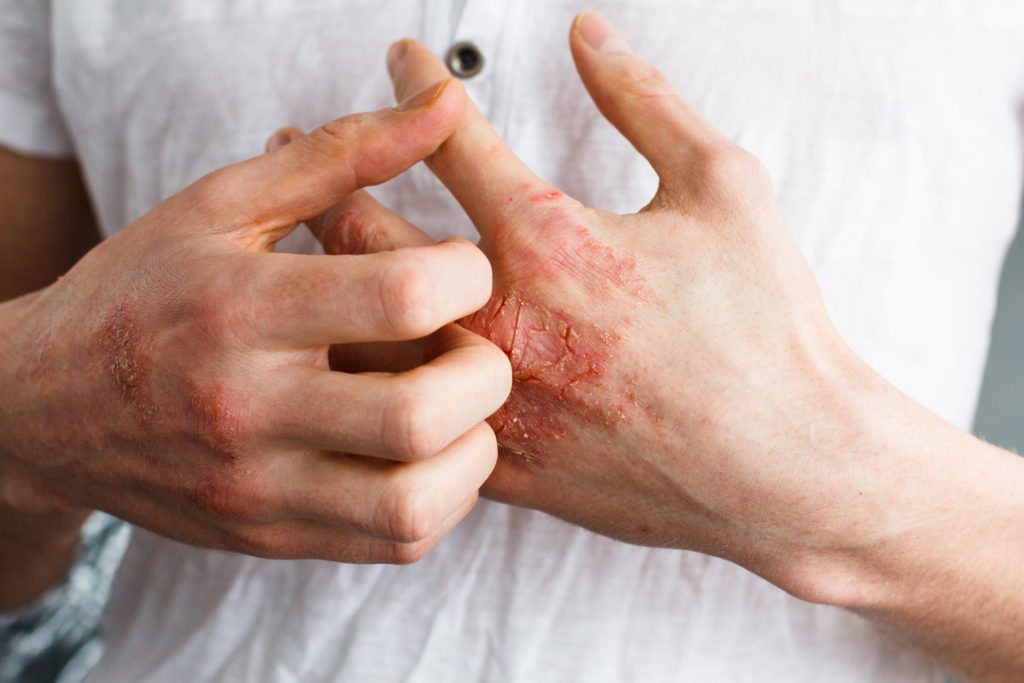
Discussing the decision to fund the trial, Caroline Collins, director of research at DEBRA, said:
“We are extremely pleased to fund this clinical trial, particularly in light of the government’s decision to legalise some forms of medical cannabis.
“Anecdotal reports from people suffering from EB suggest that cannabinoid-based medicines (CBMs) are effective for pain and itch symptom control.
“The clinical trial will start to gather the scientific evidence needed to prove that CBMs are an effective treatment for pain and itch caused by EB and will begin the work towards a new treatment protocol and evidence-based guidelines for the management of these debilitating symptoms, which we hope will improve the quality of life for many.”
DEBRA’s President, Simon Weston CBE, commented on why this research was of a special, personal, importance to him:
“For many years, I was taking opiates to deal with the pain from both injuries and surgery.
“An alternative method of pain control will be a welcome relief.”
Research debunks myth that cannabis use in your youth makes you “stupid”
Research debunks myth that cannabis use in your youth makes you “stupid”
- Recent studies have found no causation between using cannabis and a decrease in intelligence
- There is still a risk for those who use cannabis “heavily” as an adolescent
- But no evidence to suggest using cannabis in moderation, even as a youth, leads to a drop in IQ
- Studies have found cannabis to actually be beneficial for the mind, with the ability to possibly prevent dementia in the elderly
One of the most common myths used by the anti-cannabis lobby is that using cannabis, especially as a teenager, can hinder the development of the mind.
One study, published in the Proceedings of the National Academy of Sciences in 2012 by Duke University, claimed that persistent, heavy use of cannabis during adolescence was associated with a decrease in IQ levels.

The study, conducted over a 20-year period, interviewed test subjects at ages 18, 21, 26, 32, and 38. Neuropsychological testing was conducted at age 13, before initiation of cannabis use, and again at age 38 y, after a pattern of persistent cannabis use had developed. According to the study:
“Persistent cannabis use over 20 years was associated with neuropsychological decline, and greater decline was evident for more persistent users.
“This effect was concentrated among adolescent-onset cannabis users, a finding consistent with results of several studies showing executive functioning or verbal IQ deficits among adolescent-onset but not adult-onset chronic cannabis users, as well as studies showing impairment of learning, memory, and executive functions in samples of adolescent cannabis users.”
The validity of this research remains questionable, as the study had a very small sample of heavy users (38), leading researchers to question how generalisable the results were.
A counter-study, published in the same journal, found that the Duke University study had also neglected to take into account a wide range of confounding factors which could also affect the development of the mind during adolescence, for example: alcohol and tobacco use, socioeconomic status and mental illnesses.
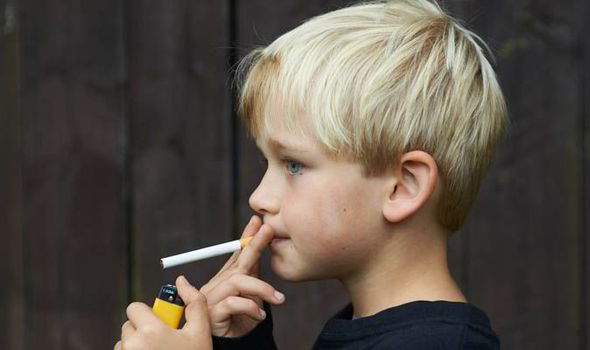
“These findings therefore suggest that cannabis use at the modest levels used by this sample of teenagers is not by itself causally related to cognitive impairment.“
– Are IQ and educational outcomes in teenagers related to their cannabis use? A prospective cohort study
Another study, conducted here in Britain, also challenged the theory that teenage use of cannabis leads to a diminished IQ level.
Researchers recorded IQ scores at both 8 and 15 years of age for an available 2235 participants.
After adjusting for a range of confounding factors, such as substance abuse (such as alcohol and tobacco), mental health and the mother’s health, researchers discovered:
“cannabis use by the age of 15 did not predict either lower teenage IQ scores or poorer educational performance.
“These findings therefore suggest that cannabis use at the modest levels used by this sample of teenagers is not by itself causally related to cognitive impairment.”
The study’s researchers determined that their results don’t necessarily invalidate the findings of the Duke University paper.
But, by focusing on persistent heavy use over a long period of time, rather than only low to moderate levels of adolescent use, the researchers concluded that:
“While persistent cannabis dependence may be linked to declining IQ across a person’s lifetime, teenage cannabis use alone does not appear to predict worse IQ outcomes in adolescents.”
Researcher published in the National Center for Biotechnology Information, investigated the impact adolescent cannabis use has on intelligence by comparing twins who did and did not use cannabis as a youth.
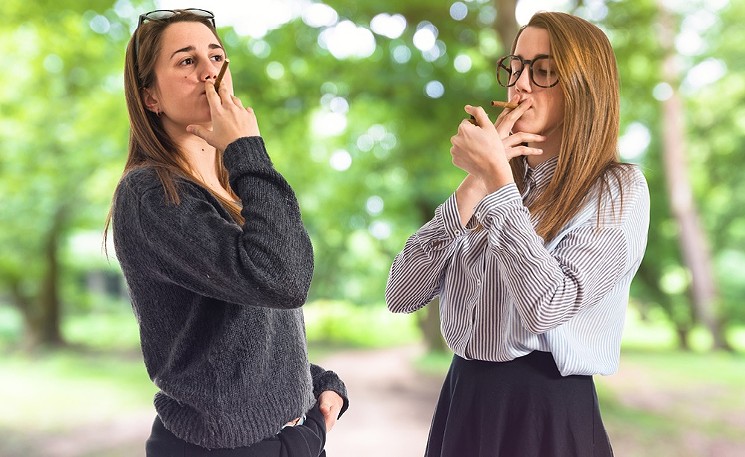
Again, they debunked the myth that cannabis use as an adolescent leads to a decrease in potential IQ. Researchers found that those who used cannabis did not experience consistently greater cognitive deficits than the others. According to the study, the Duke University paper:
“fails to support the implication by Meier et. al. [the authors of the Duke study] that marijuana exposure in adolescence causes neurocognitive decline.
“…children who are predisposed to intellectual stagnation in middle school are on a trajectory for future marijuana use.”
Essentially, rather than cannabis making kids less intelligent, it may be that children with poor academic performances or general lower intelligence, will be more inclined to try cannabis at some point during their lives.
If cannabis use was responsible for cognitive decline, as the Duke University paper suggested, then you would expect to find that the more cannabis a person uses, the less intelligent they become. But, this paper found that heavier cannabis use was not associated with greater decreases in IQ.
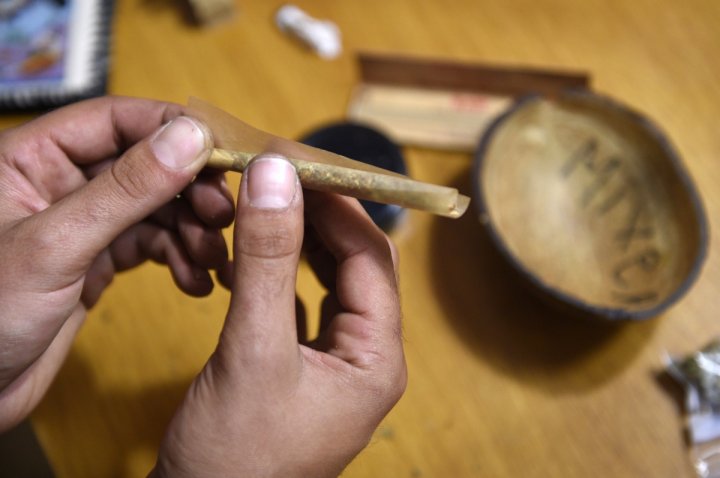
While proponents of prohibition will try and maintain that cannabis use can and will negatively impact your mental health, research is continuing to debunk these theories.
Researchers at the University of Bonn in Germany even found THC (the chemical in cannabis responsible for getting you high) actually helps the mind in the elderly rather than hurt it.
Researchers gave a low dose of THC (tetrahydrocannabinol) to mice of varying ages as part to investigate brain systems involved in the ageing process, finding that cannabis can actually reverse ageing processes in the brain.
While research is finding new and exciting ways in which cannabis helps the human body, rather than hurt it, it must be remembered that it is still a drug, and abuse of any substance can lead to an unbalanced, and potentially unhealthy, life.
But with more and more research, the more and more we understand cannabis. The more we understand cannabis, the better we can regulate it.
The British Government will soon have no choice but to legalise cannabis across the board, with nearly every single argument they put forward being debunked by leading researchers.
References and further Reading
British Mother Tells Heartbreaking Story: Epileptic Daughter's Journey Through Medical Cannabis
British Mother Tells Heartbreaking Story: Epileptic Daughter’s Journey Through Medical Cannabis
- Medical Cannabis was legalised in Britain on 1st November
- However, thousands of parents are still unable to access cannabis-based medication for their children
- “Mother X” told us in her own words how cannabis is helping her epileptic daughter, and the distress her family is still in due to the British Government failing to deliver on their promise to bring access to those who need it most
- Here is Mother X and her daughter, B’s, story:
“Our Journey Into Cannabis,” by Mother X
In the early hours of a warm Summer morning 22 years ago, “B” arrived into the world, three weeks late, battered, bruised and swollen.
Despite her traumatic birth, she was put into a cot amongst the other new babies where, a few hours later, I would find her lifeless body. Amongst a haze of alarms and panic, she was resuscitated and put onto a ventilator where she remained for the days to follow.
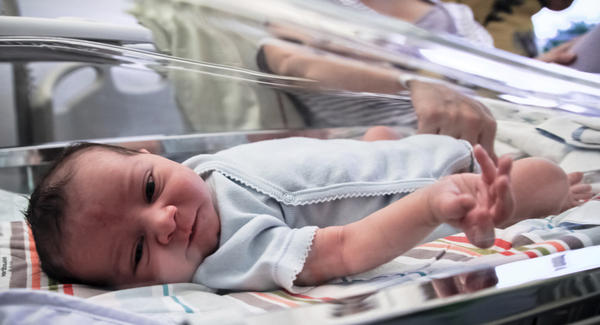
Whilst our lives fell apart around us, we were ‘questioned’ as to whether we had could have contributed to this turn of events in some way and handed a Polaroid of her in case she didn’t make it.
Against all odds, she did survive and thankfully at this stage, we could not yet know the enormity of the damage that the medical negligence had caused.
Over the next few weeks in the hospital, she would shake and twitch. It was terrifying. Despite voicing my concerns, they were laughed off as “new mother neurosis,” until the tests I requested soon proved otherwise.
Unfortunately, B’s brain damage was widespread and she was eventually given a diagnosis of quadriplegic cerebral palsy and severe epilepsy.
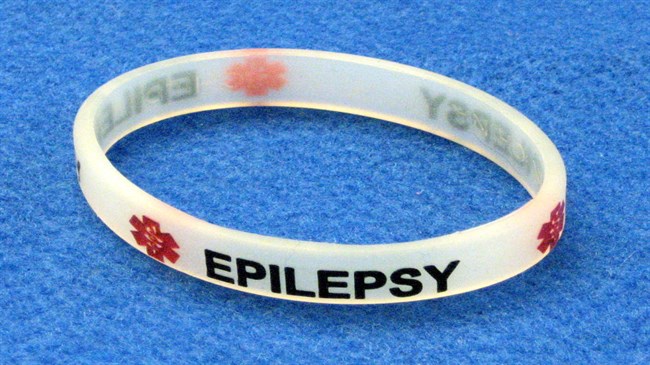
Her suffering was relentless as the epilepsy which attacked her brain day and night. At worst, she would have non-stop clusters for weeks at a time, suffering between 30 to 100 seizures per day.
At best, she would only have 20 and still smile. For us, this was a happy day.
Back then, we would administer rectal diazepam to try to halt a bad seizure. Given the unpredictable nature of them, and time being of the essence, it was not always possible to find privacy and was often undignified.
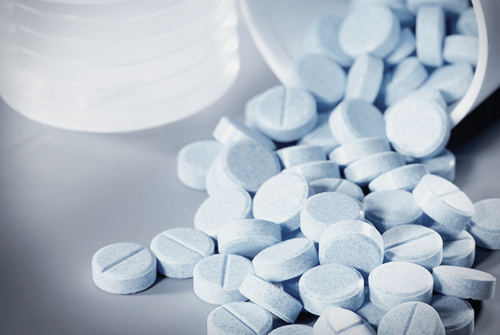
I recall unbuckling my seat belt during take-off during a flight abroad in order to administer the medicine quickly enough.
Diazepam never worked for long, and as she grew, it was impractical to get her out of her wheelchair in a hurry, not to mention the health and safety implications for any hired help.
By now, we had tried all the available anticonvulsants, often several at a time. At that time, we were having to force them down orally as she did not have a gastrostomy tube back then.
The seizures continued despite the meds and she had started to fear being held as she was traumatised by the whole experience.
Feeding had become a nightmare. B was poorly from the side-effects of the pharmaceutical medications.
B was always fearful, screaming all through the nights. Her skin began to develop sores that would open and bleed, she was exhausted and her brain was being prevented from developing.
Her constipation became so bad that she would vomit everything, including her medications. A whole week could pass by before she could gain any relief. The cycle would then begin again.
Hospital visits were long, frequent and unproductive whilst we tried to get her seizures under control.
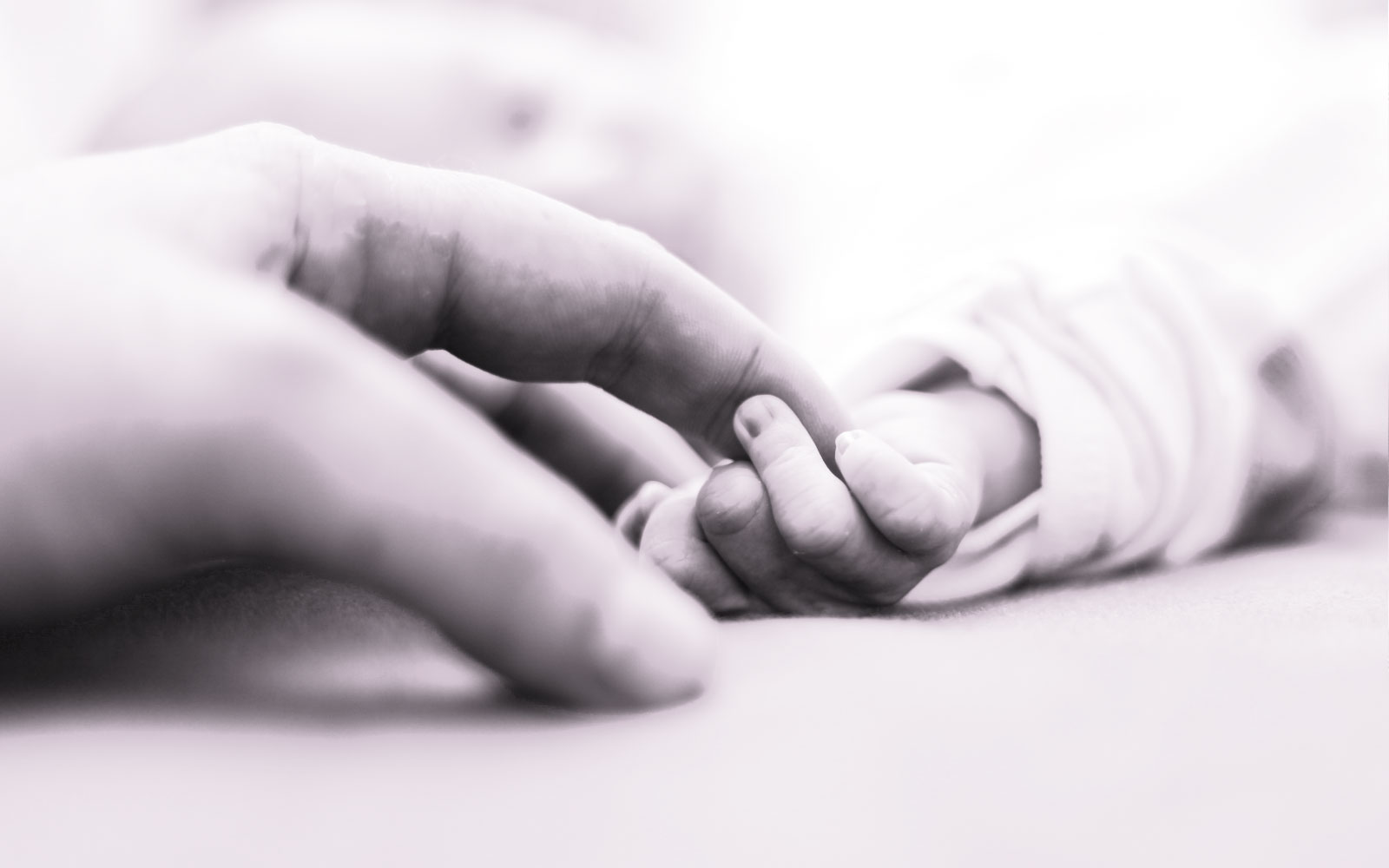
When I was due to give birth to our second child, I stayed in the hospital, living on a chair on the ward for a month, holding B day and night. The ward was noisy and no one slept, causing her seizures to further increase.
I gave birth to our second daughter two weeks later.
My daughter is now down to only around two to five seizures a day [because of medical cannabis], and they are far less severe in nature and recovery is much quicker. Some days, we don’t notice any seizures!“
During that time, there was only one neurologist covering several regions. Appointments were so rare that I think we only saw him around four times in all those years.
On the occasion that we were lucky enough to get an appointment, it was noted that we really had exhausted all available avenues. I insisted on taking her to Great Ormond Street for another opinion from their top paediatric neurologist.
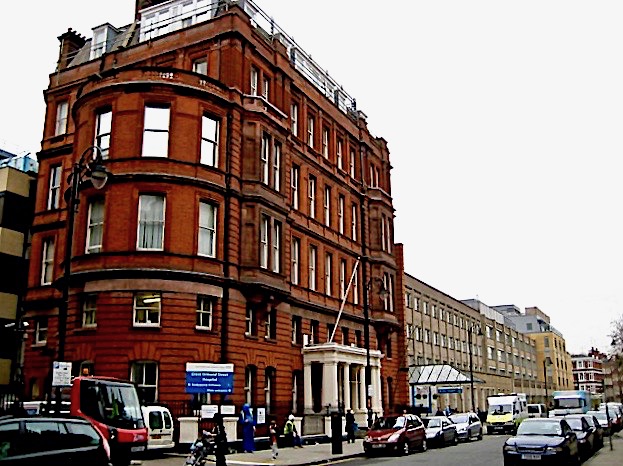
This went down like a lead balloon, but we went anyway.
Their verdict was that as her brain damage was so widespread, her epilepsy would most likely never be controlled, and she was not a suitable candidate for surgery. So the decision was then ours as to whether to take her off the meds or keep her on them.
We tried for a while to go without the medicine, but panicked and ended up putting her back on one, mainly through fear, not because there was a noticeable difference.
We now had Midazolam as a ‘rescue medication,’ but when we administered it, her reaction was terrifying. She went drip white and was unresponsive with very shallow breathing.
We were abroad at the time and our other children were terrified and crying as we drove around trying to find help. They thought their sister would die right there and they have gone through this so many times before when she has had seizures.
As a parent, it is hard to know who to console the most. Epilepsy affects the whole family, not just the sufferer, and as the years went by we just dealt with this nightmare day-by-day.
Her seizures were frequent and varied and including absences, violent head, and arm shaking and breathlessness. She could remain conscious and very distressed. We were all terrified, but we had to hide it and try to reassure her as much as possible so that she felt safe.
All we could do was time them and wait for them to end.
Sometimes she would look like she had suffered a stroke, as one pupil would dilate and her mouth would drop on one side.
She was exhausted, zombified and, frankly, so were we. When she reached 17 she was dismissed from paediatrics and assigned a ‘one size fits all’ neurologist who we practically begged to consider B for a trial that was being conducted with CBD for epilepsy.
He said “of course he would look into it,” but as the weeks went by, so did the trial and we heard nothing back. When we asked “why?” we were then passed off with some excuse.
Feeling ignored, helpless and angry, I began to gather as much information as I could to help my daughter as it seemed that no one else would.
I contacted many professionals and parents around the world, joined groups on social media and read study after study about the effects of CBD and THC.
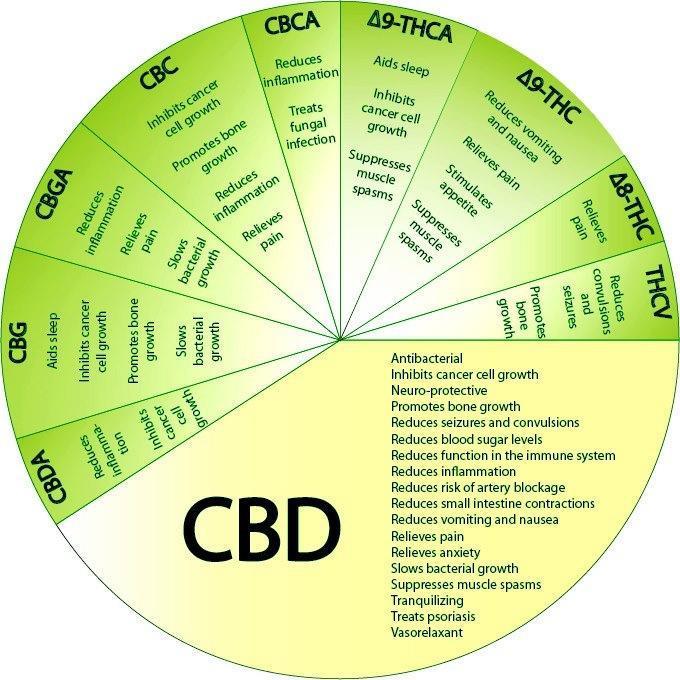
I ordered from several reputable suppliers including Endoca and the Dutch Natural Healing Company whom I had thoroughly researched.
There are different strengths of oils but I went for the strongest, a 15% hemp oil, based on all the research suggesting that epilepsy usually needs high doses.
At first we started slow, as I didn’t know exactly what would happen and although I’m a relatively well-informed woman with a mind of my own, I was still a little uneasy due to all the negative propaganda we are fed about cannabis by the media in order to stop us from healing ourselves and rely on their pharmaceutical products for profit.
I was so nervous on the first day I administered it to B, and I had to try it myself as B is non-verbal, otherwise, I couldn’t understand how she would feel.
Wow!
My anxiety melted away and left me with a clear mind and B…?
She did not spontaneously combust or anything of the sort.
So we raised her dose from about 4 drops to about 9 drops a day . ( each drop contained 5mg of CBD).
These drops go under the tongue for best effect but for those like B who gag or choke they are fine to be mixed in something like honey or Nutella type spread.
Also, Dutch Natural Healing sent me a pump of water soluble CBD so that I could mix it in water and administer via her feeding tube.
Within days she was more alert, her absences halved along with some of her other seizures and her recovery was much quicker.
Her muscle tightness reduced and she would show me by wiggling her ankles and raising her arms whilst she laughed in amazement.
She could not do this before.
This oil was the closest thing to a miracle and hope began to live in us where fear had reigned for 20 years.
As the dose increased eventually to almost 200mg Endoca CBD per day (this is common for epilepsy), her seizures decreased and I was now encouraged to see how we might get rid of some of the more persistent seizures BY adding a little THC.
This is illegal in this country due to outdated laws based not on science but on lies and greed.
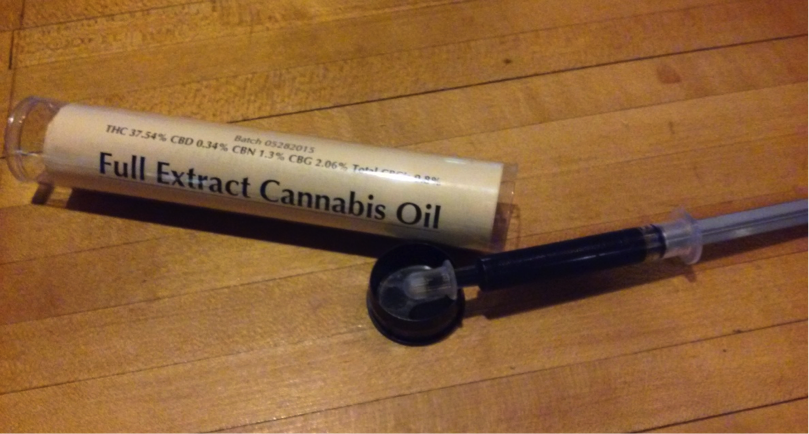
I spoke with other parents and studied and studied. Their stories were too positive to ignore and too many to be a coincidence.
Fuelled by hope, I went and bought a dry herb vape, a small device that you can heat cannabis to a vapour without any tobacco. I attached a piece of tubing and a nebuliser mask and the next time she had a cluster of seizures, I took the plunge and administered a couple of puffs down the tube with the mask near her face.
The effect was immediate, showing a marked reduction in her twitchiness, she was far less anxious and more relaxed. That was a success, but I knew that as it had an odour, and It wouldn’t always be ok for me to inhale any if I was driving, then it wasn’t possible to administer this way long term.
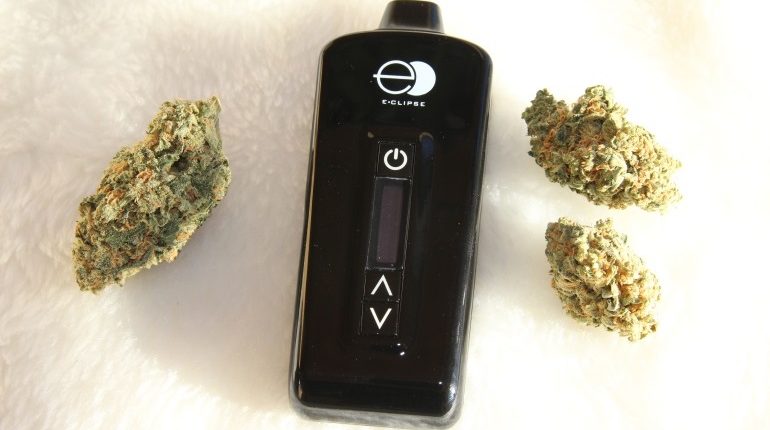
Before long, I had learned how to make very high-quality medical cannabis oils, like coconut cannabis oil and full extract cannabis oil (FECO). Again, after testing on myself, keeping notes and tweaking doses here and there, we found cannabis to be the most successful treatment she has ever had.
FECO Is made using a rice cooker and either ethanol or isopropanol and is very easy to make.
The cannabis infused coconut oil is just as easy, if not a bit safer.
B is down to around two to five seizures a day, but they are much less severe in nature and recovery is much quicker. Some days we don’t notice any seizures!
She has a small amount of coconut cannabis oil, about 7.5 ml twice a day to maintain this with zero side effects.
She has this as a suppository as this way of administering eliminates any ‘high’ or ‘sleepy’ feelings, but during particularly bad clusters, or her bad tremor weeks, I add some FECO (made with a 2:1 CBD-THC strain of cannabis) at a dose of 1g/1ml a day, whereas at the start I would use very small amounts.
This helps stops seizures on those days where nothing did before.
I always leave at least two hours between any other medication and CBD/THC in order for it to not interfere with them. The liver processes CBD first, so if I leave two hours then the usual medication will be processed too.
She is only on a very low dose of Carbamazepine now and I think she will be weaned off that too.
Her bone pain is also helped massively by the addition of THC, it even helps reduce her spasticity. I have had to get to know my daughter all over again.
I told a GP what I was doing, and the results, so I asked her to apply for Bedrocan as this has the THC in it that could help her because I don’t want to have to be criminalised and sneak around to help my child.
The GP told me that she agrees and understands, but that she wouldn’t apply as they’re uncomfortable about it.
I’m sure she wasn’t as uncomfortable as B was while having 100 seizures a day, but that’s the state of affairs. Add that to the new Government guidelines which state that only under 18’s can apply, what choice am I left with?
Everyone should have access to cannabis before being forced to take a cocktail of mind-numbing medicines or surgery!
I will not condemn my daughter back to a life of hell, just to remain within the law.
I would rather my other children saw me through bars, knowing it was because I chose not to let their sister suffer when the government would rather line their pockets and watch her die!
For loving my child and protecting her from suffering harm and very possibly death, I could be sentenced to prison for 14 years.
Who are the real criminals?
Mother X
*Disclaimer*
This article is an in independent testimonial and story from a British mother. It is *not* medical advice and if using cannabis or making cannabis oil at home please do so within lawful jurisdictions.References and further Reading
Leading Police and Crime Commissioner believes “sensible discussion” needed on cannabis in the UK
Leading Police and Crime Commissioner believes “sensible discussion” needed on cannabis in the UK
- Hardyal Dhindsa, PCC for Derbyshire, “impressed” by UK’s increasing numbers of cannabis clubs
- Dhindsa joins a growing number of PCCs calling for a rethink on cannabis laws in the UK
- 100s of cannabis clubs have been founded in the UK in recent years
- The British Government rejects all advise to decriminalise or legalise cannabis from top advisers
Hardyal Dhindsa, the Police and Crime Commissioner (PCC) responsible for drug abuse in the UK, made fresh calls for decriminalising cannabis this week.
Dhindsa, the PCC for Derbyshire who and the lead on substance abuse for the Association of Police and Crime Commissioners, claimed that the war on drugs is not working, saying it was time to have a fresh look at alternatives for tackling drug addiction and use.

A Home Office spokesman, however, refuted Dhindsa’s argument, saying the Conservative-led government has no plans to decriminalise cannabis for recreational use. The spokesman said legalising, or decriminalising, cannabis would send the “wrong message,” adding:
“Scientific and medical evidence is clear that recreational cannabis use can cause harm to individuals and society.”
Recent research from America following the legalisation of cannabis in various States, however, contradicts the Government’s official stance on cannabis.
Contrary to the claims that legalising cannabis would “harm society,” a study published in The Economic Journal, found that the rate of violent crime, including murder, aggravated assaults and robberies, fell by 12.5% in counties close to the border with Mexico following the introduction of “medical marijuana laws” (MMLs).

Discussing the study in The Independent, Professor Evelina Gavrilova, said:
“MMLs allow people to grow and cultivate marijuana plants legally within the US.
“This means that people don’t need to buy illegal marijuana anymore so drug trafficking organisations (DTOs) have far fewer customers.”
“What impressed me [about cannabis clubs] was that they are offering support, it is regulated, they have got a membership.“
– Hardyal Dhindsa, Police and Crime Commissioner for Derbyshire
Legalising cannabis strangles gangs of their income, weakening their impact on society.
Keeping cannabis illegal, as the Conservative government desires, only strengthens the power violent gangs have over vulnerable societies in the UK.
Earlier this week, Lord Alan Sugar called for cannabis to be legalised to help alleviate the increasing violence on London’s streets following the 250th death by fatal stab wounds in the city this year.

Recent research from King’s College London also argues that keeping cannabis criminalised is causing more harm to society than legalising it would.Discussing the results of the study, senior author Dr Marta Di Forti, explained how an unregulated market in the UK increases the potential risk of users’ developing mental health issues due to a dominance of high strength cannabis:
“…we have shown that regular users of high-potency cannabis carry the highest risk for psychotic disorders, compared to those who have never used cannabis.
“The increase of high-potency cannabis on the streets poses a significant hazard to users’ mental health, and reduces their ability to choose more benign types.”
By preventing cannabis users to option to purchase cannabis in legal shops or pharmacies, preventing them the choice between high or low strength cannabis strains, the Government is forcing users, including medical patients, to buy exclusively strong cannabis from dangerous gangs. There is an alternative though.
Cannabis clubs offer a safer alternative to both recreational and medicinal cannabis users.
Mr. Dhindsa is just one of the growing numbers of PCCs who have visited some of the growing numbers of cannabis clubs in the UK.
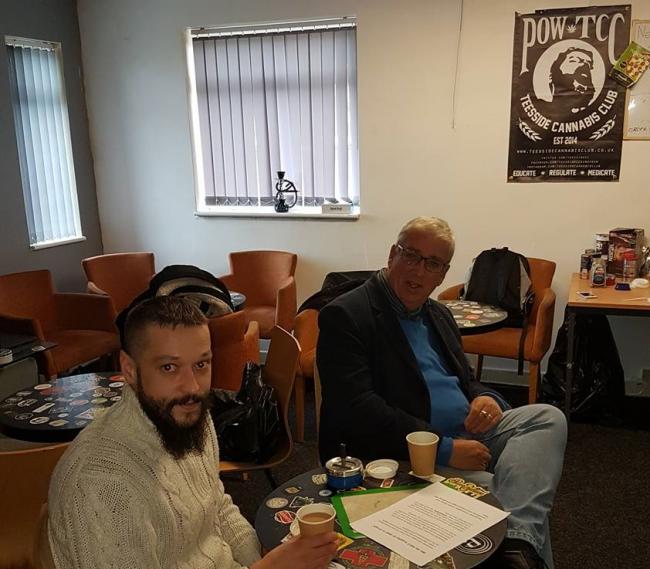
Whilst refraining from offering his support for these clubs, Dhindsa expressed concerns that decades of “the war on drugs” had failed to stop the use or supply of illegal drugs”
“As with tobacco, education and regulation is a much better way of making a difference.
“What impressed me [about cannabis clubs] was that they are offering support, it is regulated, they have got a membership.
“They are not allowing people to make profit out of this and allowing for personal use, which many people do in this country irrespective of what the law is.
“But I think we need to have a grown-up and sensible discussion about why people continue to use drugs and demand has not gone down.”
Arfon Jones, the PCC for North Wales, has also expressed his support for the work cannabis clubs do for their local societies.
Discussing his visit to Teesside Cannabis Club, Mr Jones, welcomed the creation of similar clubs across the country:
“I visited Teesside Cannabis Club because I wanted to see how it was run. The members bring their own cannabis. It isn’t grown on the premises and they’re not dealing or supplying.
“There are pubs and clubs where people go and drink alcohol so why shouldn’t consenting adults be able to use cannabis recreationally and without causing anyone any harm?”
Is it time for the British Government to end its failed war on drugs and legalise or decriminalise cannabis for recreational, as well as true medicinal access, or should we continue allowing dangerous criminal gangs to flood the black market with the strongest form of cannabis?
References and further Reading
Medical cannabis could be available on prescription to UK patients "within a month"
Medical cannabis could be available on prescription to UK patients “within a month”
- Medical cannabis could be available on prescription in the UK within a month
- Cannabinoid medications have previously only been available on a case by case basis, reserved for “exceptional circumstances”
- Patients will no longer be forced to try other drugs before using cannabinoid treatments
Medical cannabis could be available to patients in the UK ‘within a month’ according to a Government report.
Currently, cannabinoid-based medications have been reserved for those in ‘exceptional circumstances,’ assessed on a case-by-case basis.
The announcement offers hope to the millions of desperate patients who could potentially benefit from medical cannabis. The Home Office is expected to make an announcement over the next few weeks, rescheduling cannabis-based medications, removing THC from Schedule 1 (meaning it has “no medical properties”).
This will allow medical cannabis to be prescribed (possibly on the NHS) within a matter of weeks.
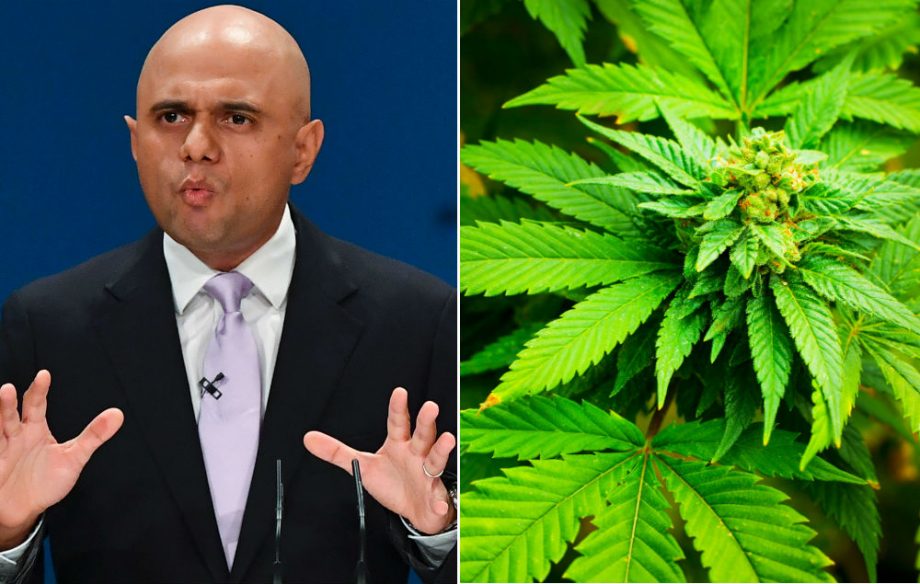
‘Priority’ patients, those who suffer with chronic pain, epilepsy, MS and nausea as a result of chemotherapy, will be among the first who will be allowed to be prescribed cannabinoid-based medications.
Figures suggest that there are an estimated 28 million people with chronic pain in the UK, with conditions including multiple sclerosis (MS), arthritis, fibromyalgia and CPRS.
The new measures will bring to the UK a wide range of cannabinoid-based medications, including oral tinctures, balms and capsules.
However, smoking cannabis (combustion, not vaping) will remain prohibited. Raw flower will be available in some forms for those who get relief via vaping.
“This is very encouraging progress for thousands of people with MS who have been forced to choose between living with relentless pain and muscle spasm or breaking the law.”
– Genevieve Edwards, MS Society
The decision signals an easing around regulations on cannabis which actively prohibit the psychoactive cannabinoid THC.

Cannabis-based medicines currently require a license, which many patients have found extremely difficult, or impossible, to acquire.
In an interview with The Telegraph, Genevieve Edwards, from the MS Society, said:
“This is very encouraging progress for thousands of people with MS who have been forced to choose between living with relentless pain and muscle spasm or breaking the law.” One of the main developments is the news that patients will no longer need to suffer on traditional, pharmaceutical medications before being recommended for medical cannabis treatments.
Previously, patients had to endure the ordeal of taking pharmaceutical, normally opioid-based, medications, which can be addictive and lead to further symptoms; often leading patients to being prescribed even more medications to deal with the side-effects of the initial prescription.
Discussing the developments, a spokesperson for the Government said:
“We completely sympathise with the families who have been facing desperate situations as they try to find treatment.”
“In July the Home Secretary committed to swift action on behalf of those whose medical conditions could potentially be eased by cannabis-based products and we have announced that cannabis-based products for medicinal use will be available for specialist doctors to prescribe legally from the Autumn.
“In the interim the expert panel will consider applications for these products. Any proposed course of treatment with cannabis-based medicine must be clinically led.”
Medical cannabis could be available on prescription to UK patients within a month
Medical cannabis could be available on prescription to UK patients within a month
- Medical cannabis could be available on prescription in the UK within a month
- Cannabinoid medications have previously only been available on a case by case basis, reserved for “exceptional circumstances”
- Patients will no longer be forced to try other drugs before using cannabinoid treatments
Medical cannabis could be available to patients in the UK ‘within a month’ according to a Government report.
Currently, cannabinoid-based medications have been reserved for those in ‘exceptional circumstances,’ assessed on a case-by-case basis.
The announcement offers hope to the millions of desperate patients who could potentially benefit from medical cannabis. The Home Office is expected to make an announcement over the next few weeks, rescheduling cannabis-based medications, removing THC from Schedule 1 (meaning it has “no medical properties”).

This will allow medical cannabis to be prescribed (possibly on the NHS) within a matter of weeks.
‘Priority’ patients, those who suffer with chronic pain, epilepsy, MS and nausea as a result of chemotherapy, will be among the first who will be allowed to be prescribed cannabinoid-based medications.
Figures suggest that there are an estimated 28 million people with chronic pain in the UK, with conditions including multiple sclerosis (MS), arthritis, fibromyalgia and CPRS.
“This is very encouraging progress for thousands of people with MS who have been forced to choose between living with relentless pain and muscle spasm or breaking the law.“
– Genevieve Edwards, MS Society
The new measures will bring to the UK a wide range of cannabinoid-based medications, including oral tinctures, balms and capsules.
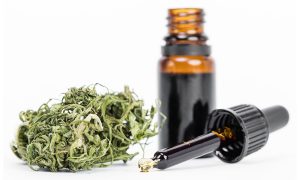
However, smoking cannabis (combustion, not vaping) will remain prohibited. Raw flower will be available in some forms for those who get relief via vaping.
The decision signals an easing around regulations on cannabis which actively prohibit the psychoactive cannabinoid THC.
Cannabis-based medicines currently require a license, which many patients have found extremely difficult, or impossible, to acquire. In an interview with The Telegraph, Genevieve Edwards, from the MS Society, said:
“This is very encouraging progress for thousands of people with MS who have been forced to choose between living with relentless pain and muscle spasm or breaking the law.”
One of the main developments is the news that patients will no longer need to suffer on traditional, pharmaceutical medications before being recommended for medical cannabis treatments.
Previously, patients had to endure the ordeal of taking pharmaceutical, normally opioid-based, medications, which can be addictive and lead to further symptoms; often leading patients to being prescribed even more medications to deal with the side-effects of the initial prescription.
Discussing the developments, a spokesperson for the Government said:
“We completely sympathise with the families who have been facing desperate situations as they try to find treatment.”
“In July the Home Secretary committed to swift action on behalf of those whose medical conditions could potentially be eased by cannabis-based products and we have announced that cannabis-based products for medicinal use will be available for specialist doctors to prescribe legally from the Autumn.
“In the interim the expert panel will consider applications for these products. Any proposed course of treatment with cannabis-based medicine must be clinically led.’
Emmerdale's Leah Bracknell reveals she is using cannabis oil to treat her terminal lung cancer
Emmerdale’s Leah Bracknell reveals she is using cannabis oil to treat her terminal lung cancer
- Emmerdale actress Leah Bracknell was diagnosed with terminal stage four lung cancer in 2016
- Bracknell believes cannabis is to thank for slowing down the progress of her illness
- The actress has pleaded with the Tory Government to legalise cannabis for medical purposes
- With more and more celebrities revealing they are saving their own lives with cannabis, how much longer can the British Government deny cannabis to its people?
Emmerdale star, Leah Bracknell, 54, has revealed she is breaking the law to stay alive, by using illegal cannabis oil to slow down the progress of her terminal lung cancer.
The actress has been making the oil at home, despite the life-saving drug remaining illegal in the UK.
Bracknell claims she would not be alive today if it wasn’t for medical cannabis oil, declaring it “as easy as baking a cake” to make. The actress, who played Zoe Tate in Emmerdale from 1989 until 2006, credited cannabis oil with reducing the side-effects of chemotherapy, whilst also slowing down her symptoms, giving her an overall better quality of life.
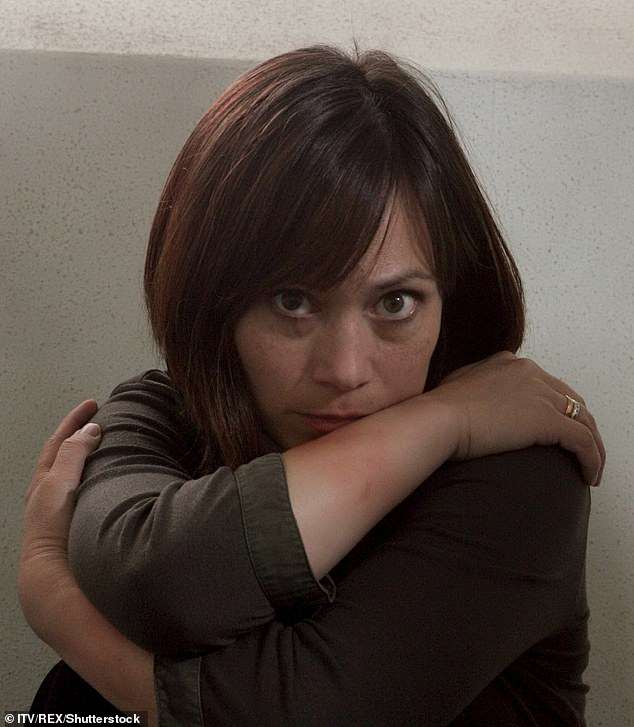
Bracknell revealed her use of cannabis in a blog post titled “Cannabis and Me: Breaking the Law.”
In the blog, Bracknell slammed Theresa May’s callousness to those who need cannabis to live, or at least have a good quality of life in their last years:
“I envy Theresa May… I envy the fact that the naughtiest thing she has ever done is run through a field of wheat.

“How might she have fared had she had to break the law to buy cannabis to give herself or a loved one the chance of life?”
“I beg the Government to be brave in decisions around legislating medicinal cannabis. To legalise it in ALL its forms for medical use.”
– Leah Bracknell
You may recall that Theresa May’s husband, Phillip, owns shares in GW Pharmaceuticals, which is currently the only company allowed to legally sell medical cannabis in the UK.
Bracknell, a mother-of-two, was diagnosed with terminal stage four lung cancer in 2016, after suddenly finding herself breathless while climbing stairs, her abdomen swelling up.
After seeing four GPs in 10 days, she was finally taken to A&E. Following being diagnosed with inoperable and incurable cancer, she started targeted biological therapy on the NHS to try and prolong her life.
However, this traditional treatment stopped being effective in August 2017, forcing the actress and yoga teacher to rely on alternative treatments, such as infrared sauna sessions and even plant-based healing oils. Bracknell admitted in her blog that she has been used ‘High THC cannabis oil’ every day since leaving the hospital two years ago.
Discussing why she decided to risk her freedom by using medical cannabis, Bracknell wrote:
“When you think you have nothing to lose and everything to gain, one’s relationship with risk becomes considerably less cautious.
“Making the oil at home from the plant is as easy as baking a cake. I have been using it as a vital component of healing. Stopping in recent months for the trial.
“I do not believe I would be here without it.’
Bracknell represents everything that is great about Britain: an unwillingness to die, suffering in silence, while our Government refuses to offer its citizens the basic right of choice in healthcare.
The brave mother faces up to five years in prison for admitting her use. Five years in prison just for refusing to die.
The Home Office recently set out an outline of their plan for the process of legalising medical cannabis, but the guiding legalisation through bureaucracy and red-tape is leaving thousands of desperate patients in medical limbo.
By the time the Government finally allows its citizens to use a safer alternative to opioid-based medication and chemotherapy, many of these patients could already have died, or suffered untold anguish.
Bracknell finished by pleading with the Conservative Government to change the law to help those in need:
“I beg the Government to be brave in decisions around legislating medicinal cannabis. To legalise it in ALL its forms for medical use.”
California University receives $4.7m donation to research CBD and Autism
[fullwidth background_color="" background_image="" background_parallax="none" enable_mobile="no" parallax_speed="0.3" background_repeat="no-repeat" background_position="left top" video_url="" video_aspect_ratio="16:9" video_webm="" video_mp4="" video_ogv="" video_preview_image="" overlay_color="" overlay_opacity="0.5" video_mute="yes" video_loop="yes" fade="no" border_size="0px" border_color="" border_style="" padding_top="20" padding_bottom="20" padding_left="" padding_right="" hundred_percent="no" equal_height_columns="no" hide_on_mobile="no" menu_anchor="" class="" id=""][separator style_type="single" top_margin="30" bottom_margin="15" sep_color="#388e47" border_size="" icon="fa-envira" icon_circle="" icon_circle_color="#ffffff" width="" alignment="center" class="" id=""][fusion_text]
- The University of California-San Diego (UCSD) received $4.7 million donation to research CBD’s effects on Autism
- The Ray and Tye Noorda Foundation made the donation
- The private ‘gift’ is the largest amount ever privately donated to fund medical cannabis research
- Autism affects 1 in 68 children in the US and over 700,000 people in the UK
The University of California-San Diego (UCSD) has received $4.7m in private funding to begin researching the potential treatment of autism with Cannabidiol (CBD).
The Ray and Tye Noorda Foundation (RTNF), in partnership with the Wholistic Research and Education Foundation (WREF), generously donated the million-dollar gift, with the funds being directly transferred to UCSD’s Center for Medicinal Cannabis Research (CMCR).

[/fusion_text][fusion_text]Created in 2000, the CMCR was designed to conduct detailed scientific research into the potential medical applications of cannabis.
The donation will be spent on funding research into how Cannabidiol (CBD) can be used in autism treatments for children.
In an online statement, the university outlined its plan to focus on how CBD could be used to treat symptoms related to severe Autism Spectrum Disorder (ASD), including seizures and high levels of anxiety.
Beginning in 2019, the study into autism will include 30 children, aged between 8 -12 years-old, with a diagnosis of ‘moderate to severe autism,” but “must be free of other neurological conditions, such as epilepsy, and in general good health.”[/fusion_text][one_fourth last="no" spacing="yes" center_content="no" hide_on_mobile="no" background_color="" background_image="" background_repeat="no-repeat" background_position="left top" hover_type="none" link="" border_position="all" border_size="0px" border_color="" border_style="" padding="" margin_top="" margin_bottom="" animation_type="" animation_direction="" animation_speed="0.1" animation_offset="" class="" id=""][separator style_type="single|dashed" top_margin="30" bottom_margin="30" sep_color="#388e47" border_size="" icon="" icon_circle="" icon_circle_color="" width="" alignment="center" class="" id=""][fusion_text]“[This new research can help] transform the lives of the many people for whom medicinal cannabis may make a meaningful difference in their quality of life.”
- David Brenner, vice chancellor of UCSD Health Sciences[/fusion_text][separator style_type="single|dashed" top_margin="30" bottom_margin="30" sep_color="#388e47" border_size="" icon="" icon_circle="" icon_circle_color="" width="" alignment="center" class="" id=""][/one_fourth][three_fourth last="yes" spacing="yes" center_content="no" hide_on_mobile="no" background_color="" background_image="" background_repeat="no-repeat" background_position="left top" hover_type="none" link="" border_position="all" border_size="0px" border_color="" border_style="" padding="" margin_top="" margin_bottom="" animation_type="" animation_direction="" animation_speed="0.1" animation_offset="" class="" id=""][fusion_text]The study has three main goals:
- Determine if CBD is safe and tolerable and whether it helps with the symptoms of ASD
- Determine whether and how CBD alters neurotransmitters and/or improves brain connectivity
- Determine whether biomarkers of neuro-inflammation, also associated with ASD, are altered by CBD
Discussing the donation, Igor Grant, professor of psychiatry and director of CMCR detailed how the university could put scientific backing behind the-so-far-anecdotal evidence from parents hailing CBD as a “wonder-drug” for their autistic children:
“There are unconfirmed reports that cannabidiol could be helpful, but there are no careful studies to document either its benefit or its safety.
“This gift will enable our researchers to develop and implement a translational program of research that pairs a clinical trial with detailed neurobehavioral observation, as well as basic science studies to determine if cannabidiol holds therapeutic promise, and if so, via what mechanisms.”[/fusion_text][/three_fourth][one_full last="yes" spacing="yes" center_content="no" hide_on_mobile="no" background_color="" background_image="" background_repeat="no-repeat" background_position="left top" hover_type="none" link="" border_position="all" border_size="0px" border_color="" border_style="solid" padding="" margin_top="30" margin_bottom="" animation_type="0" animation_direction="down" animation_speed="0.1" animation_offset="" class="" id=""][fusion_text]David Brenner, vice chancellor of UCSD Health Sciences also praised the Foundation for their donation:
“UC San Diego is pleased to partner with the Noorda and Wholistic foundations to advance understanding of when and how medicinal cannabis works.
“[This new research can help] transform the lives of the many people for whom medicinal cannabis may make a meaningful difference in their quality of life.”
The President and Co-Founder of WREF, Pelin Thorogood, also discussed the importance of scientific research to find out the workings of CBD on the symptoms (and possible cause) of autism:
“Given numerous anecdotal reports from parents suggesting CBD may be improving their child’s functioning, we are thrilled to partner with UC San Diego to understand under what circumstances CBD may be effective for autism, and why it seems to help certain individuals and not others.
“This is especially exciting since the multi-disciplinary approach employed by UC San Diego, combining clinical, basic and translational data across the same group of children, has the best chance of helping us understand the role of the endocannabinoid system in the treatment of autism.”
Research into medical cannabis in American has severe restrictions placed on it, particularly in relation to funding, due to the fact that cannabis remains a Schedule I substance.
The UCSD was able to traverse this restriction by going directly to RTNF, a private foundation, for the grant money.
According to the university, it is the biggest single donation toward researching medical ever made in the United States.[/fusion_text][/one_full][/fullwidth]


